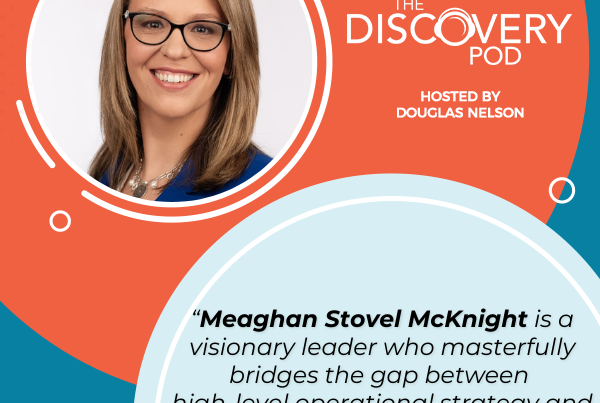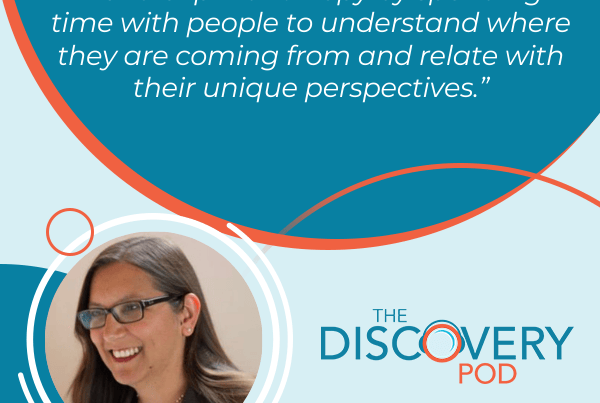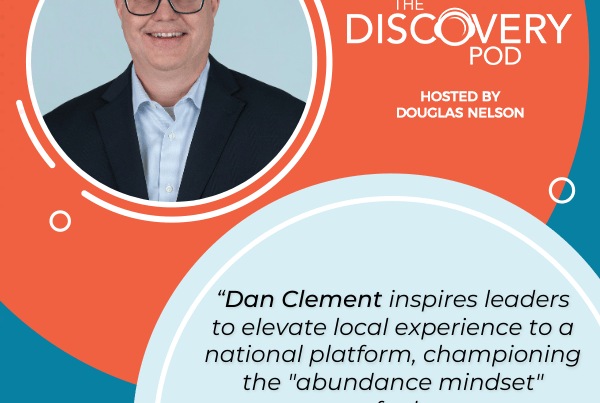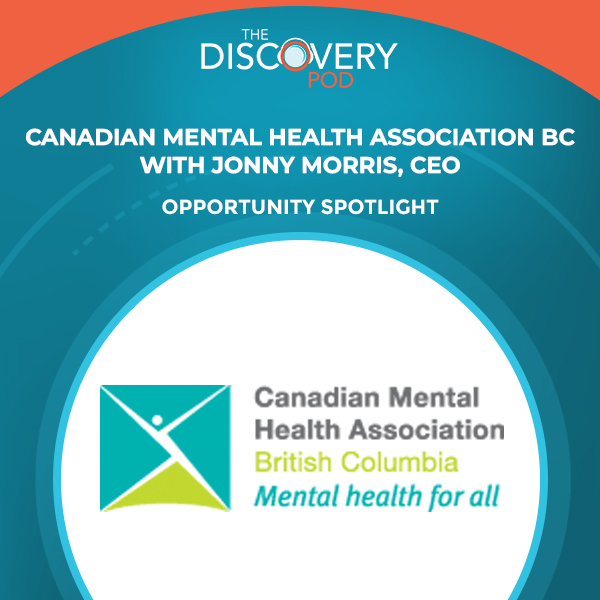
Dive deep into the pivotal Executive Director of Programs role at the Canadian Mental Health Association BC, as CEO Jonny Morris unveils the strategic vision behind this critical leadership opportunity. Learn how this individual will spearhead the integration and oversight of CMHA BC’s extensive program portfolio, from promotion to crisis intervention, and lead a dedicated team in transforming mental health care across British Columbia. Jonny highlights the immense impact this role will have, building on the success of initiatives like their community-led crisis response that has handled over 10,000 calls, and shaping the future of mental health services.
—
Listen to the podcast here
Canadian Mental Health Association BC With Jonny Morris, CEO
I’m pleased to be joined once again by Jonny Morris, who’s the CEO of the Canadian Mental Health Association BC. Welcome, Jonny. I appreciate the time and opportunity to speak with you again.
Thanks for having me back. I appreciate being here with you.
Unveiling CMHA BC: A National Charity’s Mission
My pleasure. I’m looking forward to discussing specifically with you the executive director program’s role, which we will get into in a bit more detail. First, I want to set the stage a little bit and hear from you a little bit about what exactly is CMHA BC. For someone who doesn’t know much about it and is learning about it, how would you describe what it does?
We are one of the most established mental health charities in the country. We’re a nationally federated organization. We have a national CMHA in Ontario, or a national office. We have divisional offices across all of the provinces and Yukon territory. We have branches across each of the provinces and that one territory, and then here in British Columbia, too.
Here in BC, at the division, we have three main names. First, we do significant direct service. We have a range of comprehensive programs, all the way from promoting good mental health through to crisis intervention. We do a tremendous amount of training and education. We campaign on reducing stigma and raising awareness. We also take on campaigns and fight for change. We care deeply about changing systems. We truly have a vision and mission of mental health for all.
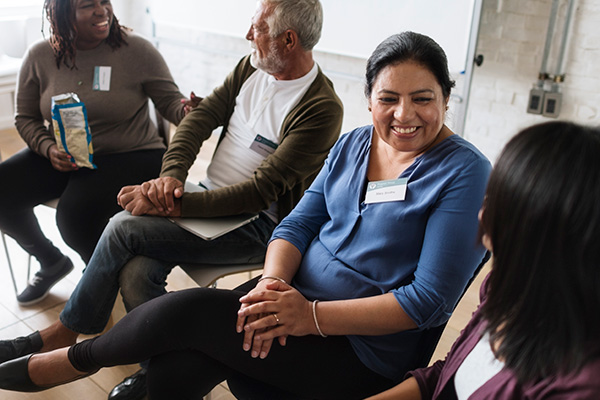
Canadian Mental Health Association: Our true vision and mission: mental health for all.
That’s fantastic. I love how you talked about the campaigns and the outreach for reducing stigma. Whenever I talk to you, you’re speaking to this person from the government or speaking to the media. There’s so much that’s going on in regards to the work you do because mental health is so topical. There is less of a stigma about it, I feel, anyway. More people are more open to speaking about it, whether it be their own struggles, their own challenges, or their own successes, for that matter. What is the role that CMHA has? Tell me a bit more about the role that CMHA has in leading and participating in the public dialogue or the public conversations about mental health.
We want to be a strong voice out there that brings hope to people who might be experiencing signs and symptoms for the first time when it comes to mental illness or mental health problems, or be there in someone’s corner if they’ve been living with a mental illness for some time. We want to shape the public dialogue so that people feel safe and comfortable talking about their mental health.
Crisis Response Transformation: CMHA BC’s Success Story
It goes without saying that how we talk about mental health and ill health today does shape how people seek help tomorrow. We want to make sure that the public decision-makers, elected officials, leaders, and system leaders are all talking about mental health and well-being in ways that are designed to make sure that people can truly ask for help and get it quickly or get it fast when it comes to healthcare.
How we talk about mental health today shapes how people seek help tomorrow. Share on XYou’ve talked so much about the kind of programs and the breadth of the programs that you have. We’re recording this at a point in time when the mental health dialogues are changing so quickly, so this might be a snapshot for that matter. Is there anything that you’re particularly proud of or something you’ve moved the needle on that, in some ways, represents the success and the kind of work that CMHA BC is doing?
I am incredibly proud of our oversight, stewardship, and care circle. That’s our crisis response community-led crisis transformation initiative. It was first started at CMHA North and West Vancouver. We have teams across five regions in British Columbia with another one to come online very soon. These teams are amazing. They send crisis responders, including people with lived experience, to people in a range of crisis situations. I’m incredibly proud that we’ve exceeded 10,000 calls to date. The teams have avoided the need for police to come 99% of the time. It’s remarkable, beautiful work. It’s a great example of how we and our partners have been able to make a significant change in how care is delivered with the support of the province.
The New Executive Director Role: Why Now?
That collective impact that’s so significant and that reduction is tremendous. Well done. Bravo. I don’t think I heard about that before. Well done. That’s excellent. I thought I knew so much about you. Let’s talk about the ED role then. Let’s pivot to that a little bit. In that context, given what you’ve outlined at CMHA BC, you’ve created this ED program’s role. Why this role? Why now? What do you know? What would you like this person to achieve, fundamentally?
CMHA BC has grown significantly over the past number of years. The breadth, depth, and complexity of our programs have also grown in important ways. We serve tens of thousands, if not more, each year. We, as an organization, are looking for a strong, seasoned leader who cares deeply about mental health and well-being. We are looking for the impact and role of community-based mental health care that could wrap their arms around the breadth and depth of programming out of the division and help walk alongside me and our other leaders at the division to make sure we can meet the challenges of tomorrow and beyond.
My ambition is that we have a leader who has the skill, aptitude, and gift not only for providing the quality oversight of these programs that will be so important, but also who can work with other leaders in our organization. This person should help tell the story of the ways in which our programs and services change lives and save lives, and do that in a clear, thoughtful, and accessible way. They will also be responsible for setting our division up for the future in this pivotal, inaugural, and important senior leadership function.

Canadian Mental Health Association: My ambition is we have a leader who has skill, aptitude, and a gift for not only providing the quality oversight of these programs, but also who can work with other leaders in our organization to help tell the story.
Not to get too caught up in the details, in some ways, but this person is going to manage a significant part of your staff team, over 100 staff, all said and done, the large majority of the budget to some degree as well. It’s not an insignificant role by any means, which is why you’ve titled it the way you have. It reports directly to you. It has a number of direct reports for that matter, too. You’re keeping it strategic and not necessarily getting too much in the weeds because the team that this person will have is such a capable group, fundamentally.
Maybe talk a little bit more about those operational pieces, if you will. You’ve talked about the strategy and the collective impact telling that collective story, but then the operational side is a significant piece. You don’t necessarily need a mental health clinician in the role, but somebody who has broader leadership capabilities in some ways.
Having someone who’s adept at overseeing and leveraging a wide range of government and other funder contracts will be important. Also, overseeing, but also leading the development of ways of doing business and processes that can more tightly integrate these programs with each other. It will be important to have someone who’s a skilled people leader who knows how to motivate and bring complex teams along.
We have such a motivated and skilled workforce at the division, so someone coming into this role will have strong momentum behind them to begin with. It will be important for someone to understand how to evaluate programs systematically and make sure that every precious dollar that’s applied to these programs delivers the gains that we expect them to see.

Canadian Mental Health Association: It’s important for someone to understand how to evaluate programs systematically. And to make sure every precious dollar applied to these programs delivers the expected gains.
Also, someone, without getting into the details, who can help distinct programs and work alongside each other. Finding those synergies, finding those opportunities for cross-team collaboration for greater gain, and finding efficiencies, all of those attributes in a leader. Someone who carries a lot of vision and a lot of strategy but also understands the mechanics of effectively leading diverse programs is a must.
Inside CMHA BC: A Mission-Driven Culture
As a member of your senior leadership group as well, they’ll be collaborating with the fundraising and marketing communication lead, the finance lead, the operations lead, and things like that to bring out the best in the organization, elevate the sites, and manage the specifics. You alluded to a highly motivated and skilled group. Tell me a bit more about the working culture. What are things like on a day-to-day basis in the community of CMHA?
We have an incredibly hardworking team at all levels across the organization. We are being asked to do more and more. There’s no shortage of opportunities and work to accomplish. There’s a very strong, friendly, and social component. Our teams like to spend time with each other. We have a hybrid flexible working environment as well.
Being part of a larger organization across the country helps you not feel alone when pushing for the change we all want to see in the community. Share on XAcross the board, people are very committed to our mission. I did a town hall. It was a virtual town hall. I felt how engaged people at CMHR are in wanting to make a better world and change the world when it comes to mental health and well-being. This is part of the uniqueness. Being part of a federation, like being part of a bigger organization, across this country also helps you not feel alone when it comes to pushing for the change we all want to see in community mental health care and other parts of the health system. I’ve been here for a long time. I feel grateful to get up every morning and be part of an organization that is so devoted to mental health.
Final Thoughts And Call To Action
That’s so nicely put. I appreciate the gratitude as well as how engaged the staff team is. I’ve certainly seen that in dealing with your staff and your teams and how important the mission is. That’s what drives people. You talked a bit about it at the very beginning, the impact that people feel, and the great work they’re doing fundamentally. Beyond that, what do you think are the compelling reasons for joining you? Why do you think someone might want to leave where they are or throw their hat into the ring and consider being your next executive director?
I’d say three things. First, if you want to be at the pointy edge of chain transformation, we’re an incredibly trusted partner. We have many other partners. Most certainly, transforming mental healthcare is work that is not done alone. We do it in alliance with a number of other key partners. If you want to be part of innovative, bold, ambitious, transformational change when it comes to community-based mental health care, think about us.
Transforming mental healthcare is work that is not done alone. Share on XTwo, if you’ve got that bench of experience, skill, and strength and you want to bring that longstanding expertise and experience into a new space or at a different level within our organization, we want to hear from you, too, if you want to make that change. Thirdly, we offer a great place to work. We are proud, for example, of the ways in which we’ve made mental health care benefits more accessible to employees. We are proud of trying to make sure work-life balance is a key experience when you work here, notwithstanding the fact that it is demanding work. If you’re wanting to be in a place that’s friendly, welcoming, dedicated, engaged, and very caring, think of CMHA.
I’ve alluded to our working together before. This isn’t our first search working together. Whenever I speak to you, I always come off our calls inspired, compelled, and moved. As an organization, you’re living your mission. You talked about the benefits and the work-life balance. The tremendous work and impact you and your teams are doing are quite significant and quite moving. It’s always a pleasure to work with you, speak with you, and learn more about what’s happening in the space.
I encourage anyone tuning in to come forward to ask questions. We encourage curiosity. We encourage interest. I can be reached at [email protected]. I certainly encourage people to think about this opportunity. My classic question I like to ask anybody is, is there anything else I should have asked about but didn’t, or anything else you wanted to share?
You covered everything I was hoping to share there. Nothing else comes to mind.
I’m looking forward to bringing some wonderful, interesting, and compelling candidates forward and vice versa as they learn about you and the organization. Once again, thank you for your time. I’m looking forward to working with you.
You too.
Thanks.

